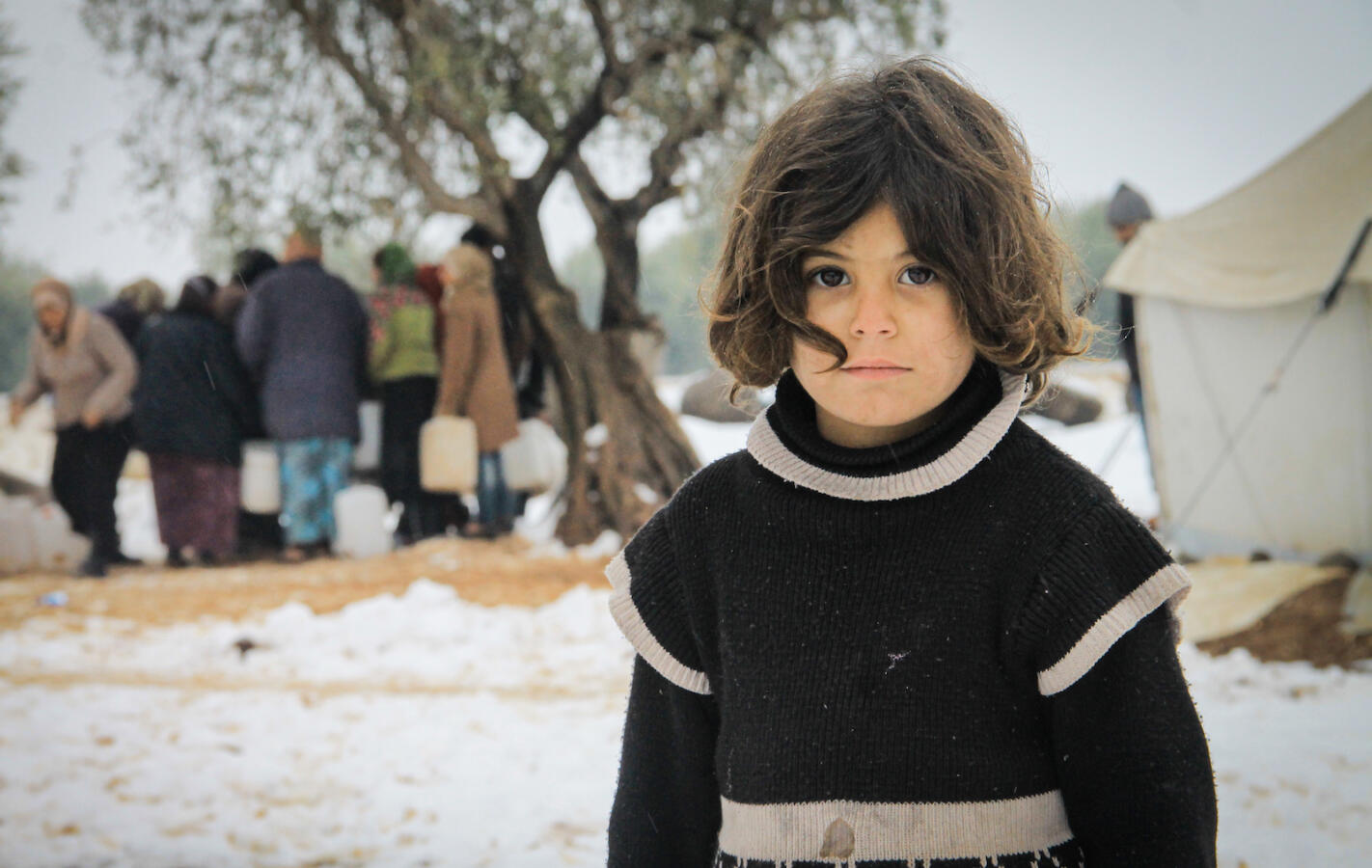Next week, the world will mark a grim milestone: one year since Russia invaded Ukraine. For those of us living in Europe, the sense of crisis has long since passed. The initial flood of refugees has slowed to a trickle, and many Ukrainians living abroad have found ways to head back home for periods — to visit and care for family, to give and receive support, to grieve, and to otherwise contend with life.
But even as the situation stabilizes, bad news persists. Young men are still forced to become soldiers. Many continue to lose their lives. And the prospect of an end to it all seems hopelessly remote. How do we contend with this reality? Jewish tradition offers a robust set of ethics around wars and firm rules for those who fight them. But what, if anything, does Jewish tradition have to offer war’s witnesses?
Living in Germany this last year, I have become a witness to the biggest refugee crisis since World War II. I can hardly step outside without hearing Ukrainian spoken on the streets, a testament to the number of refugees who have settled in Berlin. My children’s kindergarten has added several classrooms to accommodate the Jewish children who fled Ukraine at the beginning of the war. When Ukrainian colleagues from the Hillel movement came to Germany, we found them jobs and opportunities to join communities. The dominant language in my German office is now a Ukrainian-Russian mix. Many Ukrainian friends live with the pain of not knowing when they’ll see their families back home again. The trauma is palpable, and often hard to grapple with.
In this week’s Torah portion, in the first set of laws given after the Jewish people’s thunderous receiving of the Torah at Mount Sinai, we read the famous commandment: “Do not oppress a stranger; you know the soul of the stranger, for you were strangers in the land of Egypt” (Exodus 23:9). Rabbis have interpreted the term “stranger” many ways, including as a reference to converts to Judaism. But “stranger” can also refer to one who ends up somewhere other than home, including those who have fled war or persecution. Taken this way, we are obliged not only to not oppress refugees, but to follow this law because we “know their souls.” For refugees, the Torah demands intense compassion.

Help us keep Jewish knowledge accessible to millions of people around the world.
Your donation to My Jewish Learning fuels endless journeys of Jewish discovery. With your help, My Jewish Learning can continue to provide nonstop opportunities for learning, connection and growth.
Interestingly, the Torah gives us this instruction as part of its establishment of the first Jewish justice system. Basic principles include treating even one’s enemy with fairness (“If you come across your enemy’s ox or his donkey going astray, bring it back to him,” Exodus 23:4) and preserving justice at all costs (“Do not bend justice even for your needy in dispute,” Exodus 23:6). We are told to act righteously and never to receive or believe false reports.
The 19th-century German commentator Rabbi Samson Raphael Hirsch observed that widening our hearts for the stranger is not just a basic premise of the justice system, but a way of nourishing a spirit of equality and humanity within the Jewish nation. Our system of religious laws only works if we operate from an understanding of our common humanity. This is a core principle of Jewish civilization.
Truth be told, most days pass normally. Many of our Ukrainian guests have become residents, and may even have begun to feel a sense of belonging here in Berlin. But this superficial normalcy is not enough. We are charged with knowing the soul of a stranger, not just their biography. But how? Is it possible to have a level of empathy so intense that we can feel the trauma and displacement of our neighbors?
I believe the charge is simpler than this. At first glance, we might see many barriers to activating true compassion for our Ukrainian fellows. After months of bearing witness to mass atrocity in the media, fatigue sets in. The war rambles on, and we naturally tune out or forget. The endless cycle of bad news can be too much to handle. Yet I don’t believe the Torah’s call to know the soul of a stranger asks us to do anything beyond our capacity. Compassion takes many forms, whether it’s reading an article, checking in on Ukrainian friends or colleagues, donating money, or simply raising awareness within your network that the war is not over. All of this is part of a larger call for us to treat our fellows — as far away as they may be or feel — with greater humanity and kindness, and to allow this to be the guiding principle with which we as Jews contribute to society.
This article initially appeared in My Jewish Learning’s Shabbat newsletter Recharge on Feb. 18, 2023. To sign up to receive Recharge each week in your inbox, click here.



